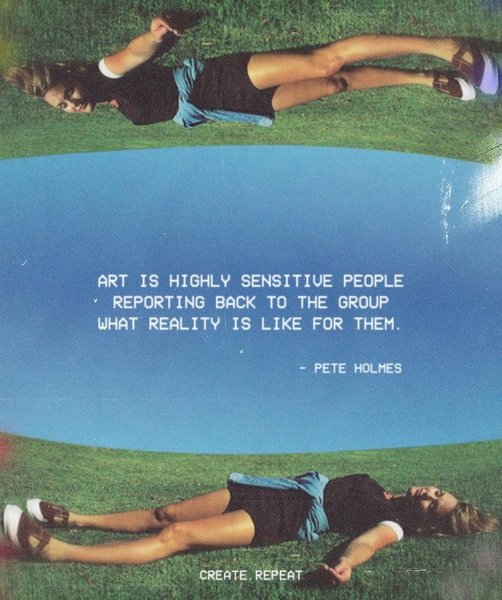reminders for the soul
The irrationalist • Writing Hack: Write It Just Like That
Our understanding of the world is shaped by a hunger for narrative that rises out of our discomfort with ambiguity and arbitrary events. When surprising things happen, we search for an explanation. The urge to resolve ambiguity can be surprisingly potent, even when the subject is inconsequential.
Henry L. Roediger III • Make It Stick
in trying to figure out the brain, the obstacle is that we have no finer instrument than the brain itself for the purpose. The greatest hindrance to objective knowledge is our own subjective presence
Alan Watts • Tao: The Watercourse Way
Good writing is specific and concrete.
William Zinsser • Writing to Learn
"Write in a way that comes naturally," "Revise and rewrite," "Do not explain too much," and the rest; above all, the cleansing, clarion "Be clear."
William Strunk JR. and E.B. White • The Elements of Style, Fourth Edition
Kurt Vonnegut, talking about when he tells his wife he’s going out to buy an envelope:
“Oh, she says well, you’re not a poor man. You know, why don’t you go online and buy a hundred envelopes and put them in the closet? And so I pretend not to hear her. And go out to get an envelope because I’m going to have a hell of a good time in the process of
... See moreIf you want to be a writer, you must do two things above all others: read a lot and write a lot.
Stephen King • On Writing: A Memoir Of The Craft (A Memoir of the Craft (Reissue))

The scariest moment is always just before you start. After that, things can only get better.